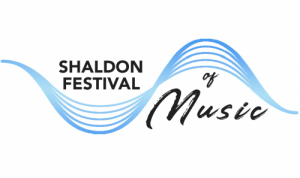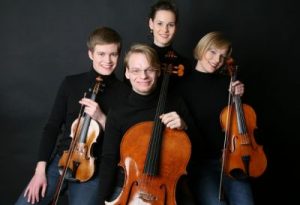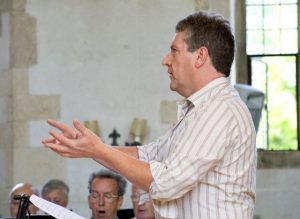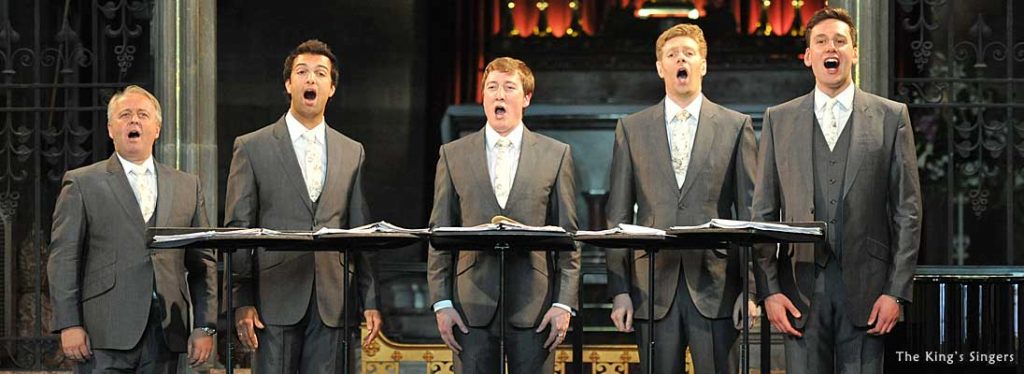Shaldon Festival 2012
Click on the past performances to jump to the information or scroll down the page.
Choral Workshop and Informal Concert 2012 directed by Jonathan Watts
Chetham’s School of Music 2012
Notos Quartet
Concert
Sunday 24 June 2012
Concert presented in association with The Parkhouse Award
Sindri Lederer Violin Antonia Köster Piano
Liisa Randalu Viola Florian Streich Cello
Dohnányi Piano Quartet in F sharp minor
Walton Piano Quartet
Dvorak Piano Quartet in E flat major op. 87
The Frankfurt-based NOTOS Quartet, winners of the 2011 Parkhouse International Chamber Music Award, gave a masterful performance of three piano quartets in the final concert of the 2012 Shaldon Festival. The pattern was established in the opening Piano Quartet in F sharp minor by Ernst Von Dohnányi; the superb blend of the three string players balanced with the finesse and skill of Antonia Köster on the piano. The sympathetic phrasing and dynamic contrasts were handled exceptionally well in this piece and the support for each other was a delight to watch. Sindri Lederer on the violin displayed a beautiful tone in the opening of the third movement and the finale came to a rousing climax with a flourish of ascending and descending chords on the piano.
Dohnányi was only 14 years old when he composed this piece and the Piano Quartet which followed was similarly an early piece of William Walton, composed at the age of 16, although much-revised in later years. The writing for the viola is particularly fine and it was a perfect vehicle to display the outstanding talent of Liisa Randalu. The spiky, dissonant dancelike rhythms of the Scherzo were well captured and there was some exquisite playing in the pastoral third movement Andante tranquillo.
The final piece was the Piano Quartet in E flat major, Op.87 by Antonin Dvo?ák. This mature work with its sharply rhythmic folk-inspired themes offset by some wonderful broad melodies received an intelligent and energetic performance from the NOTOS. From the clever detail in the opening movement, the passionate slow movement with a haunting cello melody played movingly by Florian Streich, the swaying Bohemian waltz of the third movement and consistently strong, powerful rhythmic presence of the finale, it was a spell binding performance and a consummate display of musicianship. Only formed in 2007 this is a young quartet with the potential to reach the highest rungs of their profession.
Enid Hayles
Choral Workshop and Informal Concert 2012 directed by Jonathan Watts
Choral Workshop
Saturday 23 June 2012
Handel Messiah
Directed by Jonathan Watts
Piano accompanist Peter Adcock
Soprano Ruth Jenkins
Mezzo Soprano Helen Evora
Shaldon Festival took at least three risks this year with their very popular day of choral singing:
Firstly in the choice of choral work. Handel’s Messiah is probably the most sung of all choral works and so could it attract enough singers, of all voices, to commit themselves to a day’s singing workshop. Secondly, the choice of Musical Director. It has been a practice for the Festival to invite national, or international, figures to guide the choir through the day. Jonathan Wattts is a Devon based musician. He is extremely well known on the local music scene and especially as Music Director of the Dartington Community Choir. Thirdly, the choice of just two soloists- soprano and alto. No bass or counter-tenor. It is gratifying to report that the day was a resounding success, with all three risks providing that extra edge, adding quite considerably to the overall enjoyment of the workshop and the well-attended evening performance.
Over 150 singers signed up for the day with feedback comments which included:
‘I think it was one of the best days I have enjoyed. Please ask Jonathan back again. I found him charismatic and a joy to work with’
‘It was hard work, but worth it’
The two experienced soloists, Ruth Jenkins (soprano) and Helen Evora (mezzo soprano), captivated their audience with both their charm and the clarity of their singing. They also took on the solos of the counter tenor with total confidence, and captured the mood and thought of the famously resounding words. Together with the well- balanced choir in excellent voice this made for a most memorable occasion
The choral day is a strong feature of the Shaldon Festival, attracting people from many parts of the country. An important part of the day is the extended lunch break when the majority of members flood the village for refreshment and just bask in the many delights that the village has to offer. Long may it continue.
Leon Winston
Chetham’s School of Music 2012
Concert
Friday 22 June 2012
Chetham’s School of Music Programme:
Adele Xiang – cello
Suite Italienne IGOR STRAVINSKY
Introduzione – Serenata – Aria – Tarantella – Minuetto e finale
Sarah Lenney – mezzo soprano
Sweeter than Roses HENRY PURCELL
Silent Noon RALPH VAUGHAN-WILLIAMS
Alexander Kelly – bass trombone
Prelude and Dance RAYMOND PREMRU
Samuel Gillespie – clarinet
Summertime GEORGE GERSHWIN arr.HARVEY
It Ain’t Necessarily So GEORGE GERSHWIN arr.HARVEY
Solo de Concours ANDRÉ-CHARLES MESSAGER
Amy-Jayne Milton – flute
Sonata op. 94 SERGEI PROKOFIEV
Moderato – Scherzo – Andante – Allegro con brio
Sarah Lenney – mezzo soprano
King David HERBERT HOWELLS
Old Sir Faulk WILLIAM WALTON
Alexander Kelly – bass trombone
Concerto No. 1 ALEXEY LEBEDEV
The Ensemble A RIGHT ROYAL ENCORE
Piano: Brenda Blewett
Director of Music: Stephen Threlfall
Detail:
In the second concert of the 2012 Shaldon Festival, we were treated to the impressive emerging talent of Manchester’s Chetham’s School of Music in a varied and well-balanced programme, featuring four solo instruments and voice.
The programme opened with 18-year old Adele Xiang on the cello, playing Stravinsky’s Suite Italienne. This work, adapted by Stravinsky from his ballet Pulcinella and written in his Neoclassical style, is very demanding of the cellist and would challenge any player of greater experience and maturity than Adele. But, she handled it with great skill and assurance. She brought warmth and touches of humour to the slow Serenata, beautifully captured the frenetic breathlessness of the Tarantella and moved with elegance into the Minuetto.
Sarah Lenney then gave us two tender love songs which well suited her pure mezzo voice; the first, Sweeter than Roses by Henry Purcell followed by the more languid, pastoral words of Rossetti set to music by Vaughan-Williams.
Alexander Kelly followed on the bass trombone – an instrument with which most of the audience would have been unfamiliar in solo performance – playing a piece by Raymond Premru which demonstrated the range and versatility of the trombone and showed why Alexander had won the Brass category of the BBC Young Musician of the Year competition this year.
The first half concluded with a scintillating clarinet performance by 16 year old Samuel Gillespie; two arrangements by Roger Harvey from Gershwin’s Porgy and Bess, and Solo de Concours by Messager, a melodic and summery evocation of youth and exuberance. Samuel demonstrated his mastery of technique and versatility and confidence well beyond his age.
In the second half, Amy-Jayne Milton performed Prokofiev’s Sonata op. 94 on the flute. This piece contrasts the yearning for peace with the destruction of war and Amy handled with equal ease and control the delightfully lyrical and wistful Moderato and the frantic Scherzo. Amy-Jayne is an expressive and assured musician.
Sarah Lenney returned with two more songs; King David by Herbert Howells – a soulful and richly subtle, melancholy piece – followed by the quite different rhythm and tone of Walton’s Old Sir Faulk.
The concert climaxed with Alexander Kelly playing Alexey Lebedev’s Concerto No. 1. Written for the tuba, it adapted seamlessly to the trombone. After a lyrical beginning, the music becomes increasingly demanding and Alexander once again demonstrated his complete control of his instrument.
As a finale, we were treated to an exuberant and wholly delightful version of Rule Britannia by the whole ensemble. Our thanks and congratulations go to Stephen Threlfall, Director of Music, and to Brenda Blewett, Head of Accompaniment, for a rewarding and memorable evening.
Neil McRae
The King’s Singers
Concert
Thursday 21 June 2012
David Hurley countertenor
Timothy Wayne-Wright countertenor
Paul Phoenix tenor
Christopher Bruerton baritone
Christopher Gabbitas baritone
Jonathan Howard bass
Programme:
Royal Rhymes and Rounds
The King’s Singers were formed in 1968, when the original six members were choral scholars at King’s College, Cambridge where Sir David Willcocks was Director of Music. It had long been the ambition of The Shaldon Festival to engage The King’s Singers and on Thursday 21st June, they gave their first ever performance in St Peter’s to a packed church. The coming of world-renowned musicians raises very high expectations among audiences, with the consequent risk of disappointment, but we should not have worried. Their performance was superb.
The programme for the evening comprised Royal Rhymes and Rounds, pieces newly selected in celebration of The Queen’s Diamond Jubilee. The collation explores music influenced by the Royal Court throughout the last 500 years. Starting with works for (and in some cases by) Henry VIII, the programme covered the Elizabethan Triumphs of Oriana by composers such as Gibbons and Dowland; a very Victorian selection of dedicatory works by Elgar, Parry and Stainer; choral arrangements from the opera Gloriana by Benjamin Britten composed for the coronation of Queen Elizabeth II ; and a new piece specially commissioned by the King’s Singers from Paul Drayton: A Rough Guide to the Royal Succession. Subtitled It’s just one damned king after another, the 10 minute piece celebrates our royal heritage in a comic musical romp that has the Anglo-Saxons droning in plainsong, Henry V setting off to Normandie in a rousing Agincourt Song and Elizabeth II celebrated with a rousing cockney knees up! The composer was in the audience and received delighted applause when he took a bow.
The King’s Singers Shaldon concert demonstrated the very best of their trademark qualities: pin-sharp intonation, impeccable vocal blend, flawless articulation of the text and incisive timing. Their singing appears effortless, as if it is the most natural thing in the world to sing six part harmonies of great intricacy, range over five centuries of musical tradition and develop a relaxed and playful rapport with the audience that included such one liners as “If you know this song – don’t join in “. Above all, The King’s Singers are consummate entertainers: a highly-professional act with a delightfully British wit, demonstrating that acapella vocal music (not everybody’s cup of tea) is to be enjoyed rather than endured, that “classical” formats and music can be hugely entertaining – and not at all stuffy.
Roger Kirk



